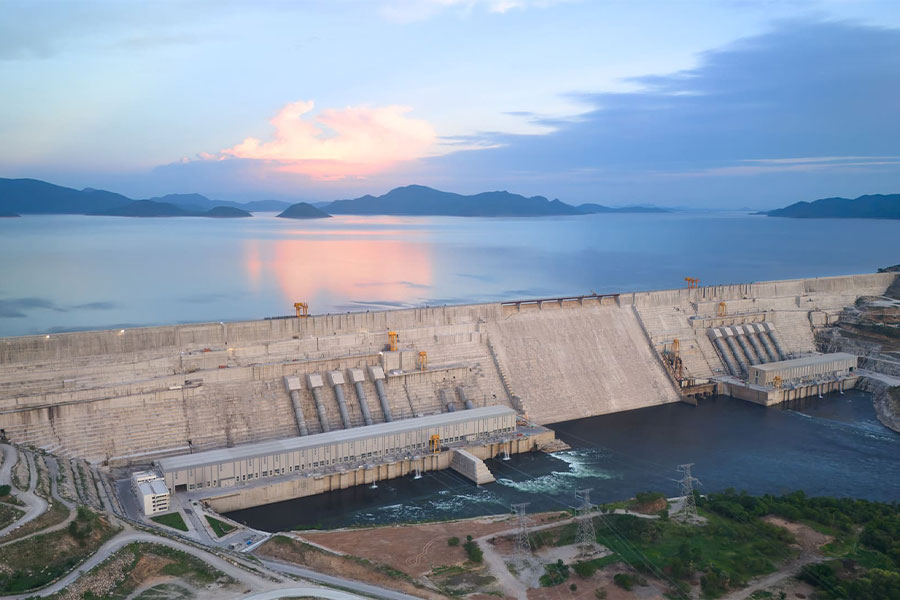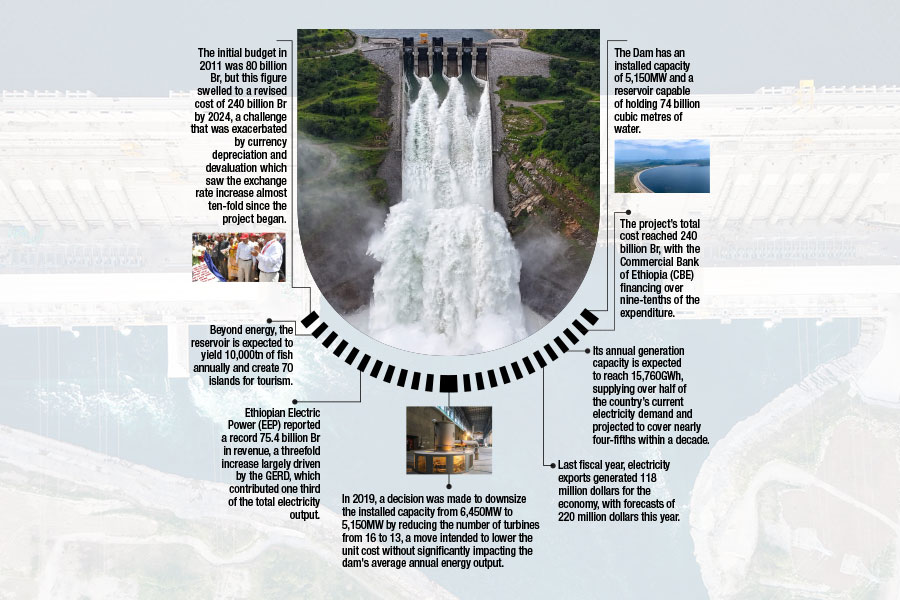
Viewpoints | Oct 03,2020
Sep 28 , 2019
By Tibebu Bekele
The 74th session of the United Nations General Assembly took place this week in New York. Nearly two hundred leaders from around the world gathered to consult about the challenges facing humankind.
Saying there were some boring speeches is to make the understatement of the week.
It was not a lovefest by any stretch of the imagination. There were leaders who cannot stand each other. There were countries on the verge of going to war whose delegates were staring each other down. But for all that and more, even with notable absentees, most leaders showed up, including those that riled up and routinely bashed multilateralism in general and the UN in particular. The point is the leadership of the entire world were there.
It was not always so. In the pre-World War II world, for example, countries generally preferred to deal with different alliances and bilateral deals than an international organisation. The precursor to the UN, the League of Nations, was an unqualified disaster as Ethiopians know only too well.
The universal failure of the world in not having an international body for collective security resulted in the destructive worldwide carnage that became World War II.
If nothing else, that global war proved to the world that the scientific and technological advances that human beings have achieved, if not harnessed in the right way through some sort of collective arrangement, are no longer containable in some regional silos but will amount to a suicidal pact of the human race. Hiroshima and Nagasaki were the ultimate proof of that fact.
Toward the end of the second world war, when the leaders of nations that have just been devastated by conflict saw a glimpse of the future of warfare, they were quickly convinced of the need for an international organisation that will provide collective security.
By the time the UN charter was ratified by 29 nations, and it came into existence on October 24, 1945, it had become clear that it is not only the prevention of war that needs international cooperation. Many task-oriented organisations of the international body like FAO, UNESCO, ICAO, the IMF and the World Bank were already set up. It was an acknowledgement of the fact that the problems and challenges of the new world can no longer be met by individual countries alone. The issues have grown to be global, so the response also needed to be universal.
If the challenges were massive 74 years ago, imagine them now. Take a more in-depth look at the challenges of today, and it is bright as daylight that there is no option but global collaboration. Take the problem of environmental degradation and climate change. Even though the small island states like the Maldives are in the front row of the devastation from climate change and are already beginning to experience some of the adverse effects, there is not much they can do to protect themselves from it.
Although they contributed little to nothing to the human-made environmental damage, they still will pay more than the worst offenders. They just cannot go it alone.
Some big countries with the biggest economies may feel they have the wherewithal to survive by themselves. But in a world of today’s interconnectedness with the wonders of technology, the health challenge of a small African country will only take days to knock on their doors. A failed state in northern Africa becomes a European problem in a matter of weeks as boatloads of refugees disembark on their shores.
Populist rhetoric and selected memories of a glorified past coupled with the desire to avoid confronting the complex problems of the world today may have made multilateralism unfashionable. But a serious analysis of the challenges the world is facing today can only reach one conclusion: international cooperation and collective action is not even a choice, it is an indispensable condition for the very existence of the human race.
PUBLISHED ON
Sep 28,2019 [ VOL
20 , NO
1013]


Viewpoints | Oct 03,2020

Commentaries | Jun 14,2025

Viewpoints | Aug 07,2021

Viewpoints | Mar 23,2024

Radar | Apr 08,2023

Fortune News | Jan 11,2020

Sunday with Eden | Sep 11,2020

Viewpoints | Aug 22,2020

Commentaries | Jun 07,2025

Fortune News | Mar 21,2020

Photo Gallery | 156727 Views | May 06,2019

Photo Gallery | 147015 Views | Apr 26,2019

Photo Gallery | 135574 Views | Oct 06,2021

My Opinion | 135269 Views | Aug 14,2021

Dec 22 , 2024 . By TIZITA SHEWAFERAW
Charged with transforming colossal state-owned enterprises into modern and competitiv...

Aug 18 , 2024 . By AKSAH ITALO
Although predictable Yonas Zerihun's job in the ride-hailing service is not immune to...

Jul 28 , 2024 . By TIZITA SHEWAFERAW
Unhabitual, perhaps too many, Samuel Gebreyohannes, 38, used to occasionally enjoy a couple of beers at breakfast. However, he recently swit...

Jul 13 , 2024 . By AKSAH ITALO
Investors who rely on tractors, trucks, and field vehicles for commuting, transporting commodities, and f...

Sep 13 , 2025
At its launch in Nairobi two years ago, the Africa Climate Summit was billed as the f...

Sep 6 , 2025
The dawn of a new year is more than a simple turning of the calendar. It is a moment...

Aug 30 , 2025
For Germans, Otto von Bismarck is first remembered as the architect of a unified nati...

Aug 23 , 2025
Banks have a new obsession. After decades chasing deposits and, more recently, digita...

Sep 15 , 2025 . By AMANUEL BEKELE
The Grand Ethiopian Renaissance Dam (GERD), Africa's largest hydroelectric power proj...

Sep 13 , 2025
The initial budget in 2011 was 80 billion Br, but this figure swelled to a revised cost of 240 billion Br by 2024, a challenge that was exac...

Banks are facing growing pressure to make sustainability central to their operations as regulators and in...

Sep 15 , 2025 . By YITBAREK GETACHEW
The Addis Abeba City Cabinet has enacted a landmark reform to its long-contentious setback regulations, a...